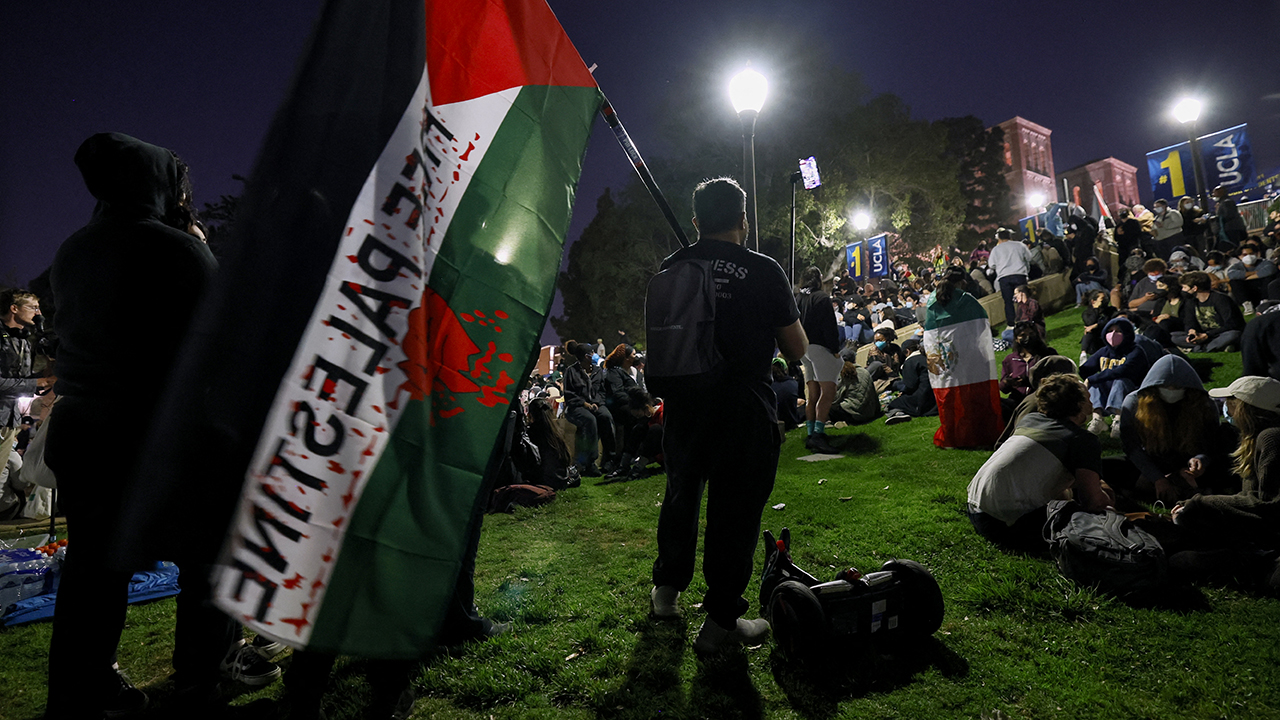Former Los Angeles County Undersheriff Paul Tanaka was sentenced Monday to five years in federal prison for his role in a wide-ranging 2011 conspiracy to derail a federal investigation of misconduct in jails.
The former second-in-command of the Sheriff's Department was found guilty in April of felony charges of conspiracy to obstruct justice and obstruction of justice. He was also ordered to serve two years of supervised release after he gets out of prison and pay a $7,500 fine.
He must surrender to begin serving his sentence on Aug. 1.
The diminutive Tanaka remained stone-faced and stood ramrod straight throughout the hour-long hearing before a tightly packed courtroom, declining an opportunity to speak to U.S. District Judge Percy Anderson.
Before imposing sentence, Anderson blasted the defendant for displaying "arrogance" during previous court appearances and refusing to show remorse for what the judge termed "a gross abuse of public trust."
"One of the most troubling things is ... your efforts to shield dirty deputies have been largely successful," Anderson told the defendant, noting that despite more than a dozen convictions in related cases, "some among your clique" remain in the department in "positions of authority."
Tanaka was found guilty in April of felony charges of conspiracy to obstruct justice and obstruction of justice.
Tanaka, who remains the mayor of Gardena despite the conviction, faced a maximum of 15 years in federal prison.
News
Top news of the day
Tanaka, 57, was the ninth sheriff's official convicted of criminal conduct based on the circumstances surrounding the hiding of inmate-informer Anthony Brown, a scheme that also involved witness tampering and the threatened arrest of an FBI special agent assigned to the jails investigation.
"After several trials and tens of convictions of Los Angeles County sheriff's officials, one thing is abundantly clear: defendant Paul Tanaka is responsible not only for obstructing justice, but also for fostering the culture that led to the significant problems in the Los Angeles County jails,'' federal prosecutors wrote in pre-sentencing papers filed with the court.
"While defendant claimed at his and three previous trials that he had only limited involvement in the conspiracy, the evidence showed instead that he was the ringleader from the beginning,'' Assistant U.S. Attorney Brandon Fox wrote.
In his own papers, co-defense counsel H. Dean Steward asked Anderson to impose a probationary sentence.
Tanaka, Steward writes, is "unjustly taking the fall'' for former Sheriff Lee Baca, who pleaded guilty to a federal charge of lying to investigators. In his proposed plea deal, which has yet to be approved by the judge, Baca is calling for a sentence ranging from probation to six months behind bars.
Steward argues that Baca had "total control'' of the Brown operation, leaving Tanaka to participate for two weeks while the sheriff was on vacation in September 2011. During that period, the defense contends, "nothing happened in the case.''
Seven former sheriff's lieutenants, sergeants and deputies convicted of conspiracy and obstruction of justice received prison sentences ranging from 18 to 41 months. Their appeal is scheduled to be heard by the U.S. 9th Circuit Court of Appeals in Pasadena on July 5.
The jury that decided Tanaka's case deliberated for less than three hours over two days before reaching a decision.
During the trial, prosecutors argued that Tanaka directed co-conspirators in a scheme to derail the 2011 investigation into allegations of excessive force within the jail system.
The case stemmed from events five years ago when a cellphone was discovered in the hands of an inmate at the Men's Central Jail. Sheriff's deputies quickly tied the phone to the FBI, which had been conducting a secret probe of brutality against inmates.
At that point, sheriff's officials "closed ranks" — allegedly at the direction of Tanaka — and began an attempt to halt the formerly covert investigation by concealing inmate-informant Brown from federal prosecutors, who had issued a writ for his grand jury appearance.
The charges included a host of "overt acts'' — including witness tampering and threatening an FBI agent with arrest. Defense attorneys, however, argued that much of the prosecution testimony was motivated by jealousy, delivered by retired sheriff's officials with grudges against Tanaka.
During two days of testimony, Tanaka denied remembering details of his communications with his now-convicted colleagues.
In their trial brief, government prosecutors maintained that Tanaka "fostered a culture that led to the significant problems in the Los Angeles County jails,'' a statement Steward calls "patently ridiculous.''
Tanaka, the attorney countered, was actually "a fearless executive in the department who fought to weed out problem deputies, not encourage them. The only culture he fostered was excellence and he made daily efforts to accomplish it.''
Last August, Tanaka's co-defendant, retired sheriff's Capt. Tom Carey, pleaded guilty to lying on the witness stand during the 2014 trial of former Deputy James Sexton, who was sentenced to 18 months imprisonment for trying to impede the jails investigation.
In exchange for his plea and cooperation, Carey, 58, can expect to receive a reduced prison sentence of not more than 16 months when he is sentenced Aug. 1, according to his plea deal.



